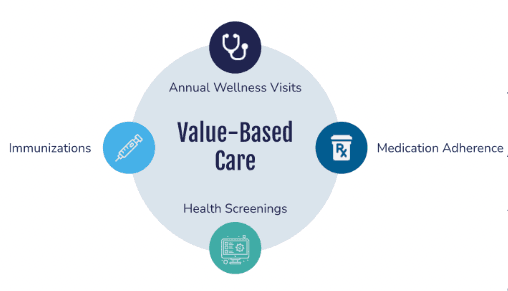Health Insurance Tips & Tricks
Private Marketplace Plan vs. ACA Plan: Understanding the Key Differences

RateQuote Direct,

Health insurance can be a complex topic, especially when it comes to understanding the differences between a Private Marketplace Plan and an ACA (Affordable Care Act) Plan. Both types of plans offer health coverage, but there are significant variations in how they operate. Below, we delve into the key variances between a Private Marketplace Plan and an ACA Plan:
Private Marketplace Plan:
- These plans are offered through private insurance companies rather than through the government.
- Individuals can purchase Private Marketplace Plans directly from insurance companies or through brokers.
- They are not subsidized by the government, meaning individuals pay the full premium amount.
- Private Marketplace Plans may offer a wider range of coverage options, including different networks of healthcare providers.
- They often provide more flexibility in terms of coverage levels and benefits, allowing individuals to choose plans that suit their specific needs.
- Premiums for Private Marketplace Plans may vary based on factors such as age, location, and health status.
- Employers can also offer Private Marketplace Plans to their employees as part of a group health insurance policy.
ACA Plan:
- Also known as Marketplace or Exchange Plans, these are offered through the Health Insurance Marketplace created by the Affordable Care Act.
- Individuals can purchase ACA Plans during the annual Open Enrollment Period or a Special Enrollment Period if they qualify.
- These plans are often subsidized by the government, making them more affordable for individuals with lower incomes.
- ACA Plans must adhere to certain regulations set forth by the Affordable Care Act, such as providing essential health benefits and coverage for pre-existing conditions.
- They are categorized into different metal tiers (Bronze, Silver, Gold, Platinum) based on the level of coverage and cost-sharing.
- ACA Plans have standardized pricing based on factors like age and location, with additional subsidies available to further reduce costs for eligible individuals.
- Employers with a certain number of employees are required to offer ACA-compliant health insurance or face penalties.
Key Differences:
- Source: Private Marketplace Plans are offered by private insurance companies, while ACA Plans are offered through the government's Health Insurance Marketplace.
- Subsidies: ACA Plans are often subsidized by the government to make coverage more affordable, while individuals pay the full premium for Private Marketplace Plans.
- Regulations: ACA Plans must adhere to specific regulations outlined in the Affordable Care Act, while Private Marketplace Plans may offer more flexibility in coverage options.
- Pricing: Premiums for ACA Plans are standardized and may be further reduced with subsidies, whereas Private Marketplace Plan premiums may vary based on individual factors.
- Employer Involvement: Employers may offer Private Marketplace Plans as part of a group policy, while ACA compliance is mandatory for certain employers.
Understanding the distinctions between Private Marketplace Plans and ACA Plans is crucial in selecting the right health insurance coverage for your needs. Consider factors such as cost, coverage options, subsidies, and regulations when comparing these two types of health insurance plans.





